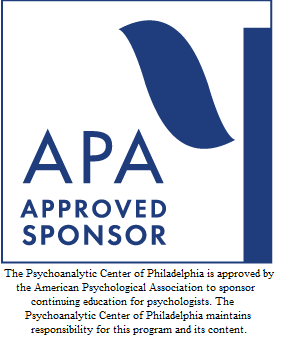- Home
- Training & Applications
- Calendar of Events
- Find a Therapist
- Membership
- Payments & Donations
Child Integrated Program: DetailsFor a full listing of all formal courses offered by the Psychoanalytic Center of Philadelphia, follow the link below:
The Child Integrated Psychoanalytic Psychotherapies Training Program’s four-year curriculum offers candidates a rigorous and creative opportunity to advance their knowledge base, clinical acumen, and develop their own unique identity as a child psychotherapist and/or child psychoanalyst. The didactic courses are arranged within three tracks including psychoanalytic theory, dynamic development and technique each of which explores a broad range of historical and contemporary child analytic theories and techniques. This program offers training in both psychotherapy and psychoanalysis. The first two years are structured so the student can graduate after with a certificate in child psychoanalytic psychotherapy. Years three and four focus exclusively on the specialized theories and techniques of child psychoanalysis. Those who choose to continue their education will graduate with certificates in both child psychoanalytic psychotherapy and child psychoanalysis. The academic year consists of two semesters beginning in September and ending in early June. The small seminar group format allows for in-depth discussions. Classes take place on Wednesdays from 1:30 pm to 4:15 pm. Students and candidates are expected to attend a minimum of 80% of all seminars each semester.
Personal Training Analysis or Psychotherapy
The child student’s/candidate’s personal psychotherapy or psychoanalysis is a requisite and essential element of our Child Psychoanalytic Program. Goals of a training therapy/analysis include both professional and personal features aiming to deepen one’s capacity for intimacy, work, and play, as well as strengthen one’s experience and understanding of the self. The student’s/candidate’s personal psychotherapy or psychoanalysis is a completely confidential experience between the therapist/analyst and candidate. The Institute is only informed of the start and end dates of treatment and the name of the training analyst. Supervised Clinical Work
Child cases can be started at any time with the approval of the Child Progression Committee. Each student/candidate is required to have three control cases: at least one of latency age, one adolescent and including patients of each gender. The candidate will select and meet weekly with an approved child supervisor; one for each case. At least one case must be carried through to a termination experience under supervision in order to be considered for graduation. A pre-latency child experience is highly recommended as a third control case. |

 Continuing Education for Psychologists (CE):
Continuing Education for Psychologists (CE):